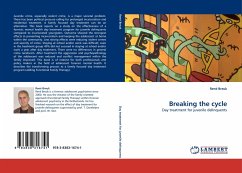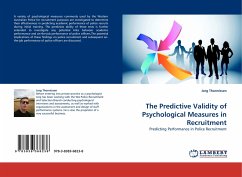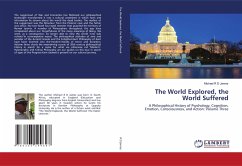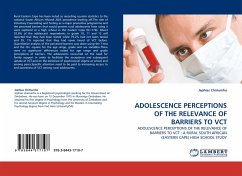
Convictions about the self and the mate
Versandkostenfrei!
Versandfertig in 6-10 Tagen
20,99 €
inkl. MwSt.

PAYBACK Punkte
10 °P sammeln!
Convictions about the self are a phenomenon which is analyzed and studied in scientific literature mainly with reference to application of psychotherapeutic techniques (for example cognitive-behavioral therapy, transactional analysis, Emotional Freedom Techniques) and in relation to neuro linguistic programming. Convictions concern the individual way of thinking, they are a type of cognition by representing dominating ideas about the self and the individual's life situation, as well as the first thoughts in occasion of a certain event (Benson, N., Colin, C. Ginsberg, D., Grand, V., Lazyan, M.a...
Convictions about the self are a phenomenon which is analyzed and studied in scientific literature mainly with reference to application of psychotherapeutic techniques (for example cognitive-behavioral therapy, transactional analysis, Emotional Freedom Techniques) and in relation to neuro linguistic programming. Convictions concern the individual way of thinking, they are a type of cognition by representing dominating ideas about the self and the individual's life situation, as well as the first thoughts in occasion of a certain event (Benson, N., Colin, C. Ginsberg, D., Grand, V., Lazyan, M.and Weeks, M., 2014, page 143-145). People have a set of convictions - thoughts they assume are true and which define the way they perceive and experience reality (Sargent, E and Fearon, T. 2012, page 20). Convictions are suggestions, presumptions, which we make for ourselves, other people and the world as a whole and which we perceive as the truth (Bavister, S. and Vickers, A., 2016, page 102). All convictions influence our lives; define our reactions to the outside world, as demonstrated by the placebo effect (Dawson, K. and Marillat, K.., 2016, page 18).












